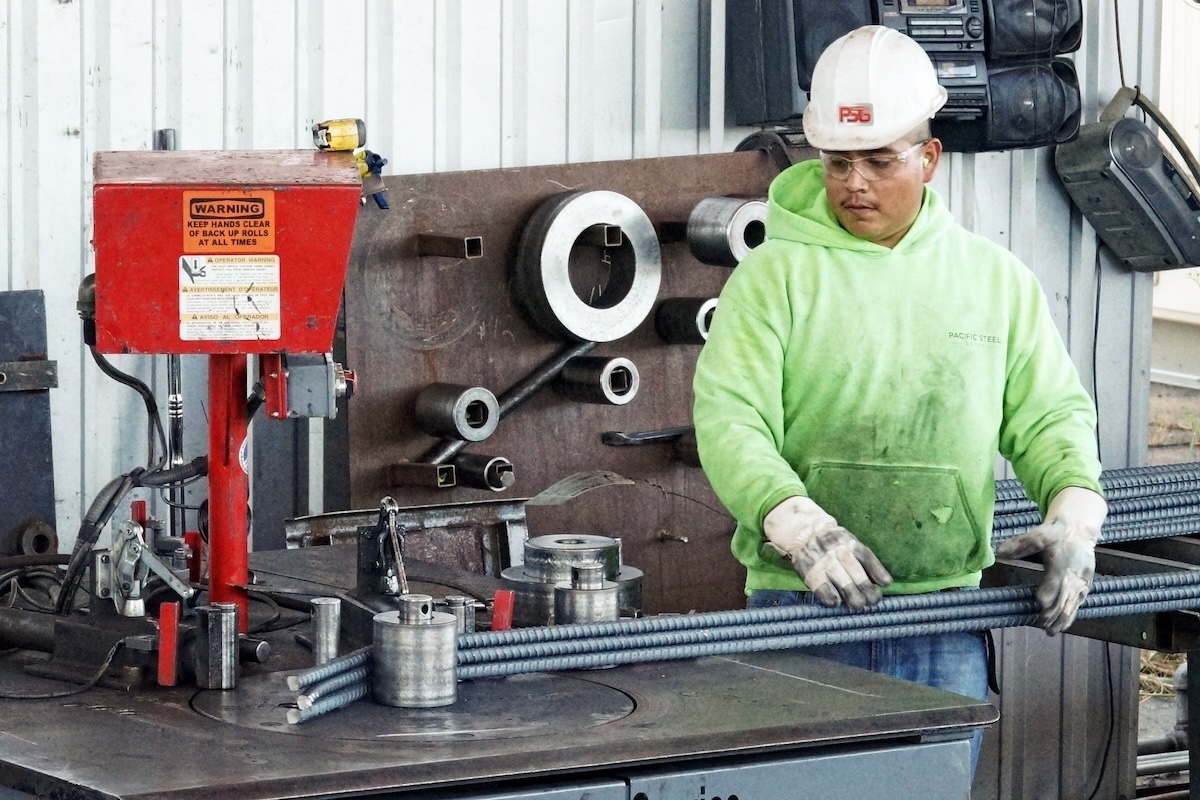Greetings Agents of Impact!
In today’s Brief:
- Deploying community climate infrastructure in Cleveland
- Financing regenerative agriculture in Europe
- Top companies driving wealth inequality
Featured: Muni Impact
In Cleveland, stakeholders mobilize to deploy climate funds for community infrastructure. Chances might have seemed slim for a state-wide green bank to finance local green infrastructure in economically challenged, Republican-led Ohio. Over the course of a year, the Cleveland and Gund foundations, with dozens of local stakeholders, incubated and launched one of the nation’s first Black-led green banks. The Go Green Energy Fund is now vying to manage key pieces of the $27 billion federal Greenhouse Gas Reduction Fund. That’s part of once-in-a-generation federal funding to stand up a locally led green revival and rebuild community infrastructure for the 21st century. “Our goal is to catalyze the market and push as much economic benefit as we can into these households, communities and businesses that ultimately can benefit,” Go Green Energy’s Michael Jeans tells ImpactAlpha. The GGRF provisions of the Inflation Reduction Act will create a distributed green bank, with historic levels of capital deployed through community development financial institutions and other local lenders. The Environmental Protection Agency is expected to announce the first GGRF awards as soon as this week. (Meet Jeans this Wednesday on ImpactAlpha’s Agents of Impact Call.)
- All of community. The “all of community” approach in northeast Ohio puts local stakeholders in charge of a just transition, says Cleveland Foundation’s Stephen Love. “What does it look like for a community like Cleveland, a majority-minority, second-poorest major city in the country, to truly lead and create equitable opportunity for folks that have been left behind in every previous economic transition?” City, county and state-level efforts in northeast Ohio position a publicly-owned utility, Cuyahoga Green Energy, to develop clean alternatives to gas and coal, the two main sources of power in Ohio. Free public EV charging sites are springing up in Cleveland, starting in historically Black neighborhoods. Power a Clean Future Ohio helps municipalities navigate federal funding to meet climate goals. On the table: green and municipal bonds. “That kind of long term capital is the right match to long-term projects,” says Jeans.
- Catalytic capital. The largest chunk of the GGRF is the $14 billion National Clean Investment Fund. Go Green Energy is part of the Coalition for Green Capital, led by former Federal Communications Commission chairman Reed Hundt, that is one of the consortia of community development financial institutions, housing developers and minority banks vying for mandates. The Cleveland green bank is also leading the Industrial Heartland Solar Coalition, a group of 31 communities across eight states in the Midwest seeking funding through another part of the GGRF, the $7 billion Solar for All program. “We have a short amount of time to really maximize this historic federal investment in American cities,” says Cleveland Mayor Justin Bibb, who chairs the bipartisan Climate Mayors network.
- Keep reading, “In Cleveland, stakeholders mobilize to deploy climate funds for community infrastructure,” by Amy Cortese on ImpactAlpha. Catch up on community infrastructure + climate justice in our new Deploy! section.
- This week’s Call. Go Green’s Michael Jeans will join this week’s Agents of Impact Call, “The Great Deployment runs through the muni bond market.” New addition: Doug Coward of Florida-based Solar and Energy Loan Fund. And Beth Bafford of Calvert Impact Capital, a leader of the Climate United consortium with Community Preservation and Self-Help that is preparing for green bank funding. Join the conversation with ImpactAlpha’s Amy Cortese and David Bank, this Wednesday, March 20 at 10am PT / 1pm ET / 5pm London. RSVP today.
Dealflow: Retail Impact Investing
HeavyFinance raises €20 million to help farmers regenerate Europe’s agriculture. Lithuania’s HeavyFinance offers credit to help farmers and small agri-businesses adopt regenerative practices to improve soil health and sequester carbon. The crowdfunding platform, which accepts amounts as small as €100, gives institutions and retail investors access to HeavyFinance’s portfolio of farmers and businesses. The agri-investment startup has directed €53 million ($57.7 million) through nearly 1,800 loans. The model is similar to US-based Steward, which provides loans to regenerative and sustainable food businesses. HeavyFinance also links farmers to voluntary carbon markets.
- First fund. The European Investment Fund anchored HeavyFinance via InvestEU, which aims to mobilize €372 billion for European policy priorities, like regenerative agriculture, by 2027. HeavyFinance is looking to dial up lending in Bulgaria, Latvia, Lithuania, Poland and Portugal with a €50 million fund. “Farmers face unprecedented challenges stemming from climate change, but they are also at the forefront of finding innovative nature-based solutions,” said HeavyFinance’s Laimonas Noreika.
- Green agriculture. Decarbonizing the agriculture sector is key to Europe’s goal of carbon neutrality by 2050. European Investment Fund recently invested in Blue Revolution Fund to support aquaculture companies and marine restoration, and in the Impact Bridge impact fund for Spanish ventures in sustainable agriculture, rural development and gender equality. Last month, EIF participated in a €335 million “synthetic securitization” on future loans that help Romanian farmers update their farming equipment and energy efficiency (see related, “Synthetic securitization to backstop small and medium-sized enterprises”).
- Share this post.
Westbound raises $100 million for tech ventures by, for or with people of color. Westbound Equity Partners launched in 2019 as Concrete Rose Capital to close racial wealth gaps with resources for early-stage founders. The ventures it backs must be led by, solving problems for, or built with underrepresented people of color. The rebranding to Westbound is meant to evoke heading west to make a new life. The Menlo Park, Calif.-based firm closed its second fund at quadruple the size of its inaugural fund. The firm’s portfolio includes Black-led waste recycling tech venture Rheaply, equitable car insurance provider LOOP, and Esusu, which helps low-income Black renters build credit by reporting their rental payments to credit bureaus.
- Returns on inclusion. Fund two “allows us to bring more Black and Latino founders and professionals into the greatest wealth generating opportunity of our time,” said Westbound’s Sean Mendy. Westbound will donate 50% of the fund manager’s share of carried interest to Westbound Foundation, which supports nonprofit organizations helping close opportunity gaps for underrepresented communities of color.
- Check it out.
Dealflow overflow. Investment news crossing our desks:
- Boston Metal, which is decarbonizing steel production, secured $20 million from the International Finance Corp. (BNN)
- Mexico City-based fintech venture Grupago secured $4.3 million in seed funding to provide credit to micro and small businesses. (Contexto)
- Mountain View, Calif.-based Furno Materials raised a $6.5 million seed round for its small-format kilns that enable localized, greener cement production, particularly in emerging markets. (TechCrunch)
- Early stage climate tech VC investor WovenEarth Ventures reached a final close of $152 million for its first fund. (WovenEarth Ventures)
Signals: Corporate Impact
From executive pay to stock buybacks, corporations favor the peak of the pyramid. Reining in executive pay. Quadrupling the tax on stock buybacks. A minimum income tax of 25% on billionaires. President Biden’s latest budget proposes tough new checks on runaway wealth inequality. But corporate wealth is growing so quickly, the rules may be outdated before they kick in, if they are enacted at all. Billionaires? We may be talking about trillionaires before the decade is out. Goldman Sachs sees surging corporate stock buybacks topping $1 trillion for the first time next year. And the average ratio of 300:1 for CEO compensation to worker pay is sounding downright quaint. A new report from the anti-poverty group Oxfam highlights companies paying their chief executives 1,500 times more than their lowest paid workers. “The problem now is that the largest corporations are actively concentrating power and money in the hands of the already wealthy, while actively limiting the power of workers, consumers and suppliers and lobbying for policies that cut taxes and regulation,” Oxfam’s Irit Tamir tells ImpactAlpha. Some highlights from “Inequality, made in America: How corporate America is fueling our inequality crisis”:
- Pay gaps. Some of the highest CEO-to-worker pay ratios are happening at companies with the lowest median salaries, according to Oxfam. Among the 10 companies with the lowest median salaries, the top CEO-worker pay ratios were at Jabil, a little-known contract manufacturing firm, (1,864:1); McDonald’s (1,745:1), TJX Companies, the parent of clothing discounters TJMaxx and Marshalls, (1,604:1); and Coca-Cola (1,594:1).
- Buyback bonanza. The 200 largest corporations in the US are making more money than ever, with combined net profits of $1.3 trillion in 2022, up 63% from 2018. Some 90% of those profits are paid out to wealthy shareholders, an all-time high. In two of the five years studied, the shareholder payouts topped the total profits earned by the top 200 firms. Top spenders include Lowe’s ($39.5 billion), Home Depot ($39.2 billion), Walmart ($35.5 billion), and Starbucks ($21.7 billion). FedEx spent nearly $6 billion on buybacks even as it lowered its median salary by 22%. President Biden’s budget would quadruple the stock buyback tax from 1% to 4% to “encourage corporations to invest in productivity and the broader economy rather than windfalls for investors.”
- Keep reading, “From executive pay to stock buybacks, corporations favor the peak of the pyramid,” by Peter S. Green on ImpactAlpha.
Agents of Impact: Follow the Talent
Don’t miss these upcoming ImpactAlpha partner events:
- Mar 26-27: Responsible Business USA (New York) – IMPACTALPHA200 for $200 off
- Mar 26-27: Phenix Capital Summit Europe (Amsterdam) – RSVP
- April 15-17: Big Path Capital MO Summit (Austin) – ImpactAlpha24 for $250 off
- May 1-2: Total Impact Summit (Philadelphia) – IMPACTALPHA for $500 off
- May 7-9: Mission Investors Exchange (Los Angeles) – RSVP
- May 13-15: Canadian Employee Ownership Conference (Montreal) – RSVP
Sana Kapadia is stepping down from her full-time role as director of strategy at 2X Global to become senior strategic advisor… Tariye Gbadegesin, a former investment committee member of Climate Policy Initiative’s Catalytic Climate Finance Facility, becomes CEO of Climate Investment Funds… Mastercard is on the hunt for several US-based ESG reporting managers… American Express is hiring a community impact portfolio associate in New York.
World Resources Institute is looking for a climate finance analyst in Washington, DC… Also in DC, Emerson Collective has an opening for a climate migration analyst… Mozilla Ventures seeks an associate… Ares Management is hiring an ESG and climate senior associate in New York… Advantage Capital is recruiting a marketing summer intern.
Triple Jump is looking for a Latin America-focused senior investment officer in Lima… IIX is on the hunt for a Vietnam-based analyst for Southeast Asia… Gavi and Seedstars are accepting applications for an incubation program for health innovations that bolster emerging market health systems’ climate resilience and immunization delivery.
👉 View (or post) impact investing jobs on ImpactAlpha’s Career Hub.
Thank you for your impact!
– March 18, 2024












